|
Asked for sharing his impression of the 2015 LOGIN Startup Fair, one of the biggest tech startup events in the Baltics held between 7–8 May in Vilnius, Marcin Hejka, Vice President and Managing Director of Intel Capital, Poland, revealed that he had observed “tremendous progress” in the Lithuanian market during the past 2 years. He also made a comment that “Lithuania has improved more than any other country in Central or Eastern Europe or even the most and has put itself very solidly on the map of important technological ecosystems in the region.” Other investors also acknowledged achievements of Lithuanian entrepreneurs. “The Lithuanian startup ecosystem could be described in these five words: technical, perseverance, networkers, community, underserved,” shared Linus Dahg, Associate of Wellington Partners, UK. Yanki Margalit, social entrepreneur and investor from Israel, evaluated the projects presented at the fair even simpler: “Less marketing and more content.” Both of them agreed that Lithuania deserves more international attention (startuplithuania.lt, 2015). This text is a step in this direction: it will present 5 facts about Lithuania which entrepreneurs and investors looking for new business opportunities should be aware of. Fact 1: Lithuania’s competitiveness index is improving very fast. In the 2015 IMD World Competitiveness ranking of 61 selected countries, it ranks 28th. It is a 6-position improvement since last year. This is the best Lithuania’s result so far as well as the best performance in the region this year. Estonia has declined by 1 position to the 31st, Poland has moved up by 3 positions to the 33rd, Latvia has declined by 8 positions to the 43rd. Lithuania has improved its competitiveness index in 6 categories: (1) by 7 positions in the economic growth category (from 44 in 2014 to 37 in 2015), (2) by 12 positions in the business effectiveness category (from 35 to 23), (3) by 13 positions in the availability of risk capital category (from 24 to 11), (4) by 8 positions in the international investment category (from 49 to 41), (5) by 7 positions in the government efficiency category (from 32 to 25) and (6) by 15 positions in the ease of doing business category (from 32 to 17) (startuplithuania.lt, 2015). Fact 2: “2014 was a record year for Lithuanian startups". This is how Enterprise Lithuania (2015) has summarised the results of the Startup Lithuania 2014 survey, which has evaluated the performance of 52 innovative IT startups. Last year they attracted EUR 46 million in investment, had 405 employees and paid over EUR 2 million in tax in total. In 2013 these figures were much lower: there were EUR 34 million in investment, over 200 employees and approx. EUR 0.5 million tax. In addition, 2014 marks some other positive changes: branches of Game Insight, WIX, Uber were established, the game industry was developing successfully and a life sciences startup ecosystem project was launched. For more information on the achievements of the Lithuanian startup community last year, please see the survey overview. Fact 3: On 10 June the Sunrise Valley Centre for Technology and Innovation was officially opened. It is part of the Science and Technology Park (STP) of the Institute of Physics, Vilnius, which conducts research and experiments in applied sciences and facilitates integration of science and business by assisting enterprises in commercialising research results and coordinating activities of the Laser & Engineering Technologies Cluster (LITEK) (STP, 2015; litek.lt, 2012). The Centre for Technology and Innovation has already accepted 23 high-tech companies such as Ekspla, a laser technology company, Ferentis, a biotechnology company, as well as some companies specialising in optoelectronics, nanotechnology and bioengineering. In addition, the Centre complex has a modern laser centre and nanoengineering laboratory (Neverauskas, 2015). Fact 4: Lithuania has one of the best Internet upload and download speeds in the world (Mančas, 2015). In the Ookla Household Upload Index, Lithuania is 5th with a 52.02 Mbps upload speed. It is the highest position in Europe. The EU average upload speed is 11.1 Mbps. In the Ookla Household Download Index, Lithuania’s result is also very high: it has been ranked 8th with a 57.93 Mbps download speed. It is the 3rd best European performance after Romania (5th position, 71.93 Mbps) and Sweden (6th position, 60.49 Mbps). The EU average download speed is 31.4 Mbps (16 June 2015 data). Fact 5: Lithuanians are among the best educated European nations (Mančas, 2015). The 2011 Population and Housing Census by Statistics Lithuania shows that “one in five Lithuanian residents has a university degree”. The best educated age group are 20–29 year olds: 22.8% of them have higher education (The Lithuania Tribune, 2013). The 2012 Eurostat European Adult Education Survey (ADS), conducted in all the EU member states, also confirms that the Lithuanian society gives a lot of attention to professional qualifications. More than 75% of 20–24 year old local students enrolled in universities and colleges in the academic year 2011/12. The EU average enrolment rate was 64.1%. For more information on business opportunities in Lithuania, please visit the websites of Enterprise Lithuania and Startup Lithuania. The author of the text is Birute Birgelyte, PR and Communications Trainee at Startup Commons. You are free to re-edit and repost this in your own blog or other use under Creative Commons Attribution 3.0 License terms by giving credit with a link to www.startupcommons.org and the original post.
This is the second part of the interview with Elitsa Panayotova, Executive Director of Sofia Tech Park, Bulgaria. She presents other Park activities and facilities. Later she describes her work at CEEDS’15, one of the biggest digital and tech events in Central and Eastern Europe which took place between 21–22 April in Sofia. She also shares her impression of the event. The first part of the interview can be accessed here. Sofia Tech Park will also have the Innovation Forum, which will host different meetings and events of the tech startup community: scientific conferences, industry panels, meetings with investors, etc. Is it already known who will be administering the Forum? Have any events been already planned? Again: no. We will also have an operator selected for the R&D Forum. Of course, Tech Park will be assisting with ideas and contacts but we will have an operator that will be responsible [for everything – ed. note]. It will work under an R&D consortium that will manage the laboratories. We are planning the first events for November but we haven’t set the dates. Probably in a month or two we’ll know the exact date of the opening and then the event dates. For two years, we have been organising events as Tech Park in different venues, mainly in Sofia: event centres, hotels and universities. This is part of the concept with which we applied for funding. The goal is to prepare the park ecosystem while developing its physical environment. Last year we had 3 or 4 events, this year we’ll have other 10. Basically once or twice a month we have events on different topics. For example, one event focused on intellectual property rights in the 3 areas that are focal to Tech Park [ICT, life sciences and energy – ed. note]. We had participants from all over Europe, the US and Israel. Then we have an event this year that will focus on matchmaking companies from different areas. One of the topics will be: How could you find horizontal integration between software development and agriculture sectors? Another event worth attention will be about innovations in the form of design: how design brings innovations to different businesses. Also, we will focus on education, not on the institutional side of it but on global trends and how they could be introduced to our society. These are events that we are organising in parallel and once the Forum opens we will be able to host them there. This year we'll probably have one or two events outside Sofia and in the future we will also try to expand our activities to other cities. How are you trying to attract local and international investors? We haven’t started attracting investors actively. You need to know the opening date and Park mechanisms before you can address all players. Our focus is not only on national companies but also regional and international. We see some interest. As we speak, companies are sending us letters of intent. We have started communicating and reviewing some of them. We have our first investor. It’s a local company called Walltopia. It is a world-leading producer of artificial climbing walls. It is constructing tailor-made buildings offices and the R&D Centre. That building will also house a lot of sport activities. We also have 2 or 3 multinationals with whom we are discussing setting up their operations in the Park. They are not newcomers to the market. We will start attracting investors actively at the end of this year or the beginning of next year. What are the eligibility criteria for investors interested in the research and development (R&D) and office facilities? Their businesses should be in the 3 focus areas of Tech Park [ICT, life sciences and energy – ed. note]. We aren’t looking for companies that just sell technology or provide services. So one of the basic criteria would be R&D. Companies should also be innovative and contribute to the whole environment. We need to give a push to the ecosystem with innovative technologies. What cooperation opportunities will be offered for international researchers? As we speak, we are talking to several international research centres about projects that we’ll be working on together when the Park opens the doors. For example, our laboratories will participate in different research projects. Sofia Tech Park is a member of the International Association of Science Parks and Areas of Innovations (IASP). What kind of support do you receive from the organisation? The support is mainly information: contacts and information on how things are done. Definitely it will grow as we operate. There will be more exchanges in the network: requests for different services, products or projects. This will be very useful for us. Between 21–22 April Sofia Tech Park participated as an exhibitor at CEEDS’15, organised by Webit. Could you describe your work there? The point of our participation was to present the project on a larger scale: to get people better informed of what we are doing and what the Park will be about. Some of them could become our clients afterwards. Also, we established new contacts and got some useful information. Some of the event lectures were focal to many aspects of our work. What is your impression of the event? It was very well visited. There were a lot of interesting companies and lectures. There was a very informative lecture on global [digital and technology – ed. note] trends. I think it was a very useful event, an event on a global scale. I am very positively impressed. It is good to have such events in the region. Would you recommend participating in the event next year? We will definitely participate and are already planning to participate in a different way. Right now we are very cautious because we are not yet there: we are at the development stage. We hope that next year we will be better visible. I think that Webit events have proved to be among the most important and interesting events in the area. They attract people and leading technology companies from all over the world. This event was quite prestigious. Even if you look at the list of lecturers and panelists: it’s an amazing group. It was a very informative and networking event. People got to know each other. For example, people whom we met came to Bulgaria for the first time and weren’t aware of certain opportunities that are in stock for them here. So this was an event where you could come up and come out with specific results and contacts. What are your future plans for cooperation with Webit’s team? We have discussed cooperation. If next year Webit is again in Sofia, we’ll be glad to host it at the Innovation Forum. We’ve agreed that after the event in Istanbul in the autumn [the 7th Global Webit Congress, 7–8 October 2015 – ed. note], we’ll discuss in more specific terms how it will turn out next year. Thank you for the interview. The author of this text is Birute Birgelyte, PR and Communications Trainee at Startup Commons. You are free to re-edit and repost this in your own blog or other use under Creative Commons Attribution 3.0 License terms by giving credit with a link to www.startupcommons.org and the original post. Photo credit: Sofia Tech Park.
According to Elitsa Panayotova, Bulgaria – especially Sofia – has been leading in developing the startup ecosystem in South Eastern Europe for the last 2-3 years. Sofia Tech Park is an ambitious project which proves that: it is the first science and technology park in Bulgaria and the region. It is was launched in June 2012 with the financial support of the Bulgarian Government and the European Regional Development Fund. It is coordinated by Sofia Tech Park JSC, a state-owned company which set a goal to “advance research, innovation and technology growth in Bulgaria” through different projects in the areas of ICT, life sciences and energy. All the infrastructure should be ready by the end of the year. The good news for entrepreneurs is that the Park will include an Incubator and Innovation Forum, which will host different high-profile tech events and meetings with investors. They could also benefit from modern office and sport facilities as well as cooperation with researchers and public servants who will be working just next door. Another good point is that Sofia Tech Park team aims to develop a network of partnerships with private and public institutions in order to create an innovation hub where they could work together on different projects or provide assistance. For example, it will be possible to get some expert consultations on commercialising tech products and services. The team has already established cooperation with Sofia University, the Technical University Sofia, Medical University and Bulgarian Academy of Science. The last piece of good news about the Park is its excellent location: it is in 6-8 min proximity to the city centre, airport, Bulgarian Academy of Science and Technical University Sofia. In order to find out more about the project, I have arranged an interview with Elitsa Panayotova, Executive Director of Sofia Tech Park. She joined the team in June 2012 when Bulgaria’s Ministry of Economy, Energy and Tourism registered Sofia Tech Park JSC. In addition, I have also asked Ms Panayotova to share some ideas about CEEDS’15, which took place between 21–22 April in Sofia. It is one of the biggest digital and tech events in Central and Eastern Europe. Sofia Tech Park participated there as an exhibitor. At what stage of development is Sofia Tech Park at the moment? What is the next step? We are in the last phase of finishing the construction and then we will have to set up all management mechanisms. The park has to be completed as a physical environment and be functional at the end of this year or the beginning of next year. Are there any big challenges with the implementation of the project? There are many different kinds of challenges. One of the purposes of Sofia tech Park is to overcome certain social and economic problems in Bulgaria. We need to bridge the gap between the academic environment and businesses because communication and technology transfer are not at their best. Finding a communication channel between them is one of the challenges. It is important for the project development because these players are key in setting the priorities. There are also a lot of challenges that are linked to different EU procedures and approvals but they are not that important. Another challenge is related to setting up the mechanisms under which the park will operate. Each of the park units has a different philosophy in itself and management scheme. At the same time, they need to be able to work together. For example, for the laboratory complex we’ll have to set up a consortium that will include Sofia Tech Park JSC as the owner of the infrastructure. Keeping the stakeholders’ interest and making them work together are also challenging. There is the startup community, businesses of different sizes and academia. We have on board 3 universities together with the Bulgarian Academy of Sciences as project partners. One of the goals of Sofia Tech Park which it would like to reach by 2016 is setting up the Incubator for start-up and spin-off companies. Could you describe in more detail what kind of project it will be? There are 3 focal areas of Sofia Tech Park: (1) information and communication technologies, (2) life sciences and (3) energy. The target of the Incubator is to concentrate all startup activities under one roof, enhance and scale up new initiatives and also open up to other areas. Right now the accelerators and incubators funds focus on IT: applications and softwares. We want to expand to bio-technologies: startups could work together with the universities on different projects in the laboratories. We also want to create a hub for entrepreneurs and startups where they will be able to find assistance and cooperate. Who will be in charge of the Incubator? We will choose an operator. We are setting up some criteria and then will be looking for an operator in the second half of this year. Has the Incubator project received a lot of interest and support of local and international entrepreneurs, startup support organisations (incubators, accelerators, etc.) and investors? We have received some interest from different investment funds that would like to partner with us and have access to companies that will be in the Incubator and also from companies that would like to use the Incubator facilities. The interest will be rising during the opening stage and after the setup and announcement of the selection criteria. All of this will be happening in the second half of this year towards the end of the year. Of course, like with all incubators around the world, it won’t be overnight success. It will take a while until companies will start working and all the units will be functional. The second part of the interview can be accessed here. The author of this text is Birute Birgelyte, PR and Communications Trainee at Startup Commons. You are free to re-edit and repost this in your own blog or other use under Creative Commons Attribution 3.0 License terms by giving credit with a link to www.startupcommons.org and the original post. Photo credit: Sofia Tech Park.
Have you ever wondered how the startup ecosystem looks in South Eastern Europe? Belizar Marinov, Manager of Investment Projects at Eleven, an accelerator and venture capital fund based in Sofia, Bulgaria, gives a simple answer: “There are a lot of promising entrepreneurs.” Promising entrepreneurs? What does it actually mean? To answer that question, let’s look at some Eleven’s statistics:
To find out more about startups from South Eastern Europe, I have asked Belizar Marinov some more questions about Eleven’s work in the region. How would you briefly describe the startup ecosystem in Bulgaria? The startup ecosystem has been developing very quickly in the past few years. There were a few organisations which started all events and gatherings. With the help of young entrepreneurs and the introduction of funds of Eleven and others, the startup ecosystem saw a really big push and development. Currently, Sofia is a very active startup place and it attracts entrepreneurs from all across Eastern Europe. There are many regular events and a number of organisations and NGOs that work actively in the field. We see that corporate sponsors support the ecosystem on a regular basis. We also have a few coworking spaces which gather startups and are venues for many events. What inspired to launch Eleven? Eleven was launched because we had belief that there are a lot of promising entrepreneurs in South Eastern Europe who can really benefit from having financial support, our accelerator programme and mentor network. Many of our founders are first time entrepreneurs and we really believe that we provide not only money but also support which is relevant for this startup stage. In what ways has Eleven helped to improve networking conditions for Bulgarian startups? The network that we create at Eleven is at the centre of what we do. We have a network of 250 mentors who participate in our mentoring sessions on a regular basis. Also, as an investor, we act as a connector between our startups and many contacts in relevant industries both here in Bulgaria and abroad. In addition to that, the founders themselves are a big network. There are over 300 founders, 150 startups and 20 different nationalities. We also regularly organise business trips abroad, which help our startups to meet relevant contacts. What local startup activities and events do you support? What are your own initiatives? As an active part in the Bulgarian ecosystem, we support a lot of events such as Startup Weekend or other type of startup competitions. There is an initiative called Pre-accelerator, which is run by one of the entrepreneurship NGOs here. We support them by giving mentorship and fast access for their alumni to our selection process. Once in a while, we host events in our coworking space and provide meeting space for some organisations in our office. We are ready to help whenever there is a need. What are the biggest challenges that Bulgarian startups face? How do you support them? The challenges could be related to the small market of Bulgaria. We see our role in helping startups to accelerate and become international. The local market is not big enough to grow a prosperous technology startup so our support is needed. In 2012 the European Commission (EC) and the European Investment Bank (EIF) provided Eleven the Entrepreneurship Acceleration and Seed Financing Instrument, worth EUR 12 million, under the Joint European Resources for Micro to Medium Enterprises (JEREMIE) Holding Fund. What results have you achieved? What are your expectations for the future? Currently, we are working on a 10-year mandate. This is a standard mandate for an early-stage venture fund like ours, meaning that during the first few years we are investing those EUR 12 million in about 100-110 projects. During the later years, we are going to manage their portfolios. Up to now, we have made nearly 110 investments. In May we are going to accept the 9th class of startups into our coworking space. This will be the last class for this EUR 12 million fund so in the future we are planning to raise another fund which will support and continue our work beyond 2015. Our biggest achievement is a community that we have created by supporting over 100 companies. Half of them are Bulgarian teams, half of them are international teams. 2-3 years from now we expect to see some first big exits. We have not made a big exit so far since our first investments are just 3 years old. What kind of support does the local startup ecosystem receive from the public and private sector? There is no doubt that the equity instruments that have been created through the JEREMIE Holding Fund are the most notable public initiative. Apart from Eleven and our colleagues from LAUNCHub, there are a few other funds which target at investments in more advanced projects. These are instruments between EUR 50–100 million that are available to entrepreneurs. Some of them are entirely public money like ours, some of them are a mixture of public and private money. In terms of private support for entrepreneurs, there is a number of tech companies that actively support events in the local ecosystem. These are some international companies like Microsoft and some Bulgarian technology companies like Telerik. Many of them also provide a lot of free services for our startups on a centralised level. For example, F6S.com connects accelerators across the world. All member accelerators have access to a lot of free perks and services for their companies such as hosting and cloud infrastructure. It could amount to USD 200 000 per year. Each year one of our startups can benefit from it. You operate not only in Bulgaria but also in the region of South Eastern Europe. Does your work in the neighbouring countries differ anyhow significantly from your local activities? Our office and coworking space are based in Sofia but we are very active in the neighbouring countries too. We don’t have permanent team members there but we travel a lot and organise local meetups. We make some selection in Slovenia, Croatia, Serbia, etc. We organise many activities there with some local founders. They act as ambassadors to Eleven: they help and represent us in the local ecosystems and refer a lot of projects to us when it comes to selecting projects for investment. Could you share any success story of a startup which took part in your accelerator programme? We have a number of interesting stories. For example, we have one startup that works on software for human resource management. They use algorithms to process a lot of resumes. Their software tries to make a fit based on some job criteria and culture. This is something that is really recognised as being useful to HR professionals. They have received over USD 500 000 of funding, moved their office to New York and actively work with big clients. The company is called Match.io. We have another interesting story of 2 founders. One of them was very young: he was only 16-year-old when we first invested in the company. The other founder was a serial entrepreneur. They created a company called Emailio, which aims to create a new mobile e-mail app. They got accepted to Y Combinator, a famous accelerator, received its funding and now are based in Silicon Valley. From over 100 companies it has supported in 10 years, the company is the first from Bulgaria and with the youngest founder ever. How does the membership in the Global Accelerator Network (GAN) benefit Eleven? Being a member of the Global Accelerator Network is very important and beneficial for us. It provides an opportunity to exchange the best practices and organise some events together with accelerators all across the world. This is very helpful because our industry is developing very quick: what was the best practice one year ago now is outdated. That’s why we want to stay on the [cutting – ed. note] edge of what is going on in our industry and to have a network which supports us in what we do and which we could extend to our founders. Thank you for the interview. The author of this text is Birute Birgelyte, PR and Communications Trainee at Startup Commons. You are free to re-edit and repost this in your own blog or other use under Creative Commons Attribution 3.0 License terms by giving credit with a link to www.startupcommons.org and the original post.
Last week the German Government approved a regulation to protect small investors investing through online securities crowdfunding portals. The law drafted in 2014 was seen by many industry players as way too restrictive, potentially able to kill the growing German market of digital investments. For the relief of many stakeholders, the approved version is softer than the original one, having eliminated a couple of the most stringent restrictions. The regulation on online investing was on the table of Angela Merkel for a while. The first draft received many criticisms from the German crowdfunding ecosystem. In fact, the proposed rules included points which created unnecessary obstacles to online investing. For example, there was a rule that investors have to send an investment information sheet via mail and sign it manually. The approved version of the Small Investors Protection Bill includes a reviewed Crowdinvesting Exemption, which leaves out previous points regarding mailing of an investment information sheet and signature. It also increases the cap under which fundraisers do not need to produce a long prospectus: from €1million to €2.5 million. Furthermore, the investment limit for retail investors has been increased up to €10,000 if they can provide a proof that their assets or income are at a sufficient level to bear the risk of loss. Otherwise, it remains at €1,000. Soon we will see if this crowdinvesting regulation has struck the right balance and will help digital investing to flourish in the country. Reference: Nienaber, M. (2015). Germany approves crowdfunding rules to protect small investors. Reuters. 23 April. This is an edited version of a post originally posted at http://www.crowdvalley.com/news/germany-adopts-regulation-for-online-investing by Irene Tordera. You are free to re-edit and repost this in your own blog or other use under Creative Commons Attribution 3.0 License terms by giving credit with a link to www.startupcommons.org and the original post. Photo credit: Got Credit, http://www.gotcredit.com/. The photo was originally published on Flickr. It has been used to illustrate this text under Creative Commons Attribution 2.0 License terms. No changes have been made.
Quite soon there will be another startup event anniversary: the 10th Startup Day 2015. It is a one-day Stockholm startup event organised by Stockholm School of Entrepreneurship (SSES) in partnership with Stockholm Business Region, an investment promotion agency owned by the City of Stockholm, Braintree, BDO, Industrifonden, Prime, Quattroporte, SUP46, Trustly, IBM as well as some startups and other companies. The event slogan reflects the main event idea: 1000 minds. 500 founders. 1 day. It means that there will be over 1000 participants: entrepreneurs, startups, investors, media representatives, etc. At least 500 of them will be founders of companies operating in Sweden or at the international level. One day appointed to the event indicates that the event programme will be very intense. Programme The event will start with a few speeches. One of the first speakers is Cristina Riesen, General Manager EMEA at Evernote, who will talk about how intelligence, creativity and computing affect work routines. Another speaker, Jesper Kouthoofd, Founder of Teenage Engineering, will share some insights on how to create a good platform for work or personal needs. Henrik Lenberg, Founder of Auxy, will give a speech with a self-explanatory title: Building a Product that People Love. In addition, David Rowan, Editor of WIRED UK, will later interview all three speakers. The next point on the agenda is Skills Workshops and Startup Pitches, which will be taking place at the same time as some other speeches. The workshop session consists of three 30-minute workshops. In the first one, Alex Budak, Country Manager Sweden at Reach for Change, will introduce social entrepreneurship and explain how to create more impact with startups. In the next workshop, Axel Cornell, Scrum Trainer, will present a user story map, illustrate it with everyday examples and show how it can be used to work on backlog. Finally, Laura Lilja, CEO of Nordic Search, will discuss the importance of search engine optimisation (SEO) for startup work. Simultaneously, there will be a startup pitch session. There will be eight 20 or 30-minute pitches which will be moderated by Sara Mattsson, Community Manager at STING, a Swedish incubator, and Terrence Brown, Associate Professor of Entrepreneurship and Innovation at the Department of Industrial Economics and Management, KTH Royal Institute of Technology in Stockholm. The performances will be evaluated by investor panels. To see the complete list of the participants, please click here. There will also be another set of simultaneous talks. For example, Caroline Walerud, Cofounder of Volumental, will focus on the following topic: Shifting the Fashion Industry from Mass Production to Fully Customized Products. Ebba Åkerman, Founder of United Invitations, will discuss what constitutes startup success in Stockholm. Ankit Desai, Digital Strategist at Universal Music, will explain why Stockholm is successful in the music industry. There will also be a Paypal Seminar on new payments opportunities for startups. Later Fredrika Gullfot, Founder and CEO of Simris Alg, will examine the topic: Empowering Change: Activism Through Entrepreneurship. Martin Willers, Cofounder of People People, will concentrate on the characteristics of establishing a company in the system context. The programme will close with the explanation of bootstrapping by Martina Elm, Cofounder of Confetti, etc. More information can be found on the official event website. The author of this text is Birute Birgelyte, PR and Communications Trainee at Startup Commons. You are free to re-edit and repost this in your own blog or other use under Creative Commons Attribution 3.0 License terms by giving credit with a link to www.startupcommons.org and the original post.
Between 23–24 April Amsterdam will host The Next Web (TNW) Conference Europe 2015. This year the event celebrates its 10th anniversary. Such a date can only mean one thing: it is an event worth attention. What is so special about it? Tim Ferriss, Author of The 4-Hour Work Week, describes it as follows: “TNW is the best breed of event. Smart attendees, provocative talks, and masterful execution. There are few things I travel around the world for, but TNW is one of them.” The unique character of the conference is also reflected by the main event objectives, which are the following: (1) to offer many valuable discussions on the latest web trends, (2) share the best business practices and (3) provide a networking platform for the leading influencers of technology and innovation, startups with international growth potential and companies which have already achieved success. Some facts about the TNW Conference Europe The conference is an annual event founded by 2 serial entrepreneurs: Boris Veldhuijzen van Zanten and Patrick de Laive in 2006 in Amsterdam. The conference soon attracted more international attention and became one of the “must-attend [events] for web enthusiasts and tech companies around the globe” (iamsterdam.com). This year the Amsterdam conference has already attracted over 3500 participants. The interest in the event is well illustrated with a long list of international partners supporting the project. There are such names as Startup Amsterdam, Adyen, Persado, Braintree and FlinchFactor, to mention a few. The Next Web team also organises TNW conferences and other business events in the US and Latin America. One of their next projects is The TNW (TNW) Conference in New York in November 2015. Programme and attendees The TNW Conference Europe in Amsterdam is a 2-day event with a hectic agenda. There will be many talks, presentations, (panel) discussions, interviews, boost startup sessions and hack battle presentations, etc. The programme is still being updated. We would like to review some of the activities and present some attendees. The conference will be opened by Boris Veldhuijzen van Zanten, Cofounder of TNW, and Neelie Kroes, former Vice President of the European Commission responsible for the Digital Agenda for Europe. At the moment, she is working as Special Envoy for Startups in the Netherlands. Apart from Ms Kroes, there will be also other politicians attending such as Sophia in ‘t Veld, a Dutch representative in the European Parliament working on new European privacy laws, as well as Kajsa Ollongren, Deputy Mayor of Amsterdam. Thus, there will be an opportunity to receive updated information relevant for digital business from the top-level politicians and ask them some questions. The event offers many thought-provoking talks. For example, Gary Shapiro, CEO of the Consumer Electronics Association, will give a speech on Disruptive Innovators Under Attack, in which he will discuss the opportunities and potential challenges which the newest business models and technologies can bring. He will also invite to a discussion on how to balance government regulations on innovations and free market competition. Another engaging speech will be No Gatekeepers – Innovation at Scale at Amazon.com by Werner Vogels, Chief Technology Officer at Amazon.com. He will share Amazon’s best practices of innovation management. He will stress the role of strong company values and culture. Finally, he will discuss some opportunities on Amazon.com platforms for innovative projects. There are also many other talks worth attention with self-explanatory titles: (1) Why Most Digital Business Transformations Will Fail (And How to Avoid It) by Martin Gill, Vice President of Forrester, (2) The Secret to Creating Successful Digital Products and Services by Aaron Shapiro, CEO of Huge, (3) The Next New Thing: Trends in the World of Venture Capital and Startups by Deborah Magid, Director of Software Strategy at IBM Venture Capital Group, and (4) Getting to Alpha – The 7 Habits of Breakthrough Innovators by Amy Jo Kim, Cofounder of Shufflebrain, etc. Furthermore, the conference will hold various panel discussions. One interesting example is Hollywood and Startups with the following participants: Cody Simms, Managing Director of Techstars, Robyn Ward, Head of New Media Ventures, UTA, Daniel Altmann, Cofounder and CEO of Naritiv, and Nick Adler, VP of Business Development at Cashmere Agency. Many questions will be discussed: startup engagement with Hollywood, entrepreneur relationship management in the entertainment industry, differences between talent agents, managers, influencers, etc. There will be also explained how content deals are done, whether startups should raise capital from the entertainment industry and the characteristics of tech startup work in the entertainment industry. In addition, among the conference participants, there will be also some recognised business book authors, who will present some ideas from their books. For example, David Allen, Author of Getting Things Done, will share his expertise on personal and organisational productivity. Samuel Hulick, Author of The Elements of User Onboarding, will teach about growing a strong userbase by offering quality onboarding experiences for users. Gabe Zichermann, Founder of Gamification Co. and Author of The Gamification Revolution, will share insights on developing a successful gamification strategy. Finally, some entrepreneurs and representatives of some big international companies will share their experience in the form of talks, presentations or interviews to guide others. The list of participants is quite long. There are such names as Samir Patel, President and CEO of Growth Machines and Growth Mentor at 500 Startups, Nicolas Brusson, Cofounder and COO of BlaBlaCar, Jitse Groen, CEO of Takeaway / Thuisbezorgd, Pieter van der Does, Cofounder and CEO of Adyen, Eric Brewer, VP of Infrastructure at Google, Xabier Ormazabal, Head of EMEA Marketing at Dropbox, Mark Randall, VP of Creativity at Adobe, Hugo Raaijmakers, Global Innovation Director at Philips International, etc. It is quite difficult to describe the TNW Conference Europe 2015 concisely without risking of omitting some important information. Naturally, in order to form a more informative opinion about the conference, you should refer to the official event programme. The author of this text is Birute Birgelyte, PR and Communications Trainee at Startup Commons. You are free to re-edit and repost this in your own blog or other use under Creative Commons Attribution 3.0 License terms by giving credit with a link to www.startupcommons.org and the original post. Photo credit: Ben Rogers. The photo was originally published on Flickr. It has been used to illustrate this text under Creative Commons Attribution 2.0 License terms. No changes have been made.
 Have you ever wondered how cold weather can affect your business? Jan Ameri, Event Director at ArcticStartup, claims that “the North is an investor no-go area” in wintertime. He came up with such an idea after feedback he received from Garan Goodman, Director of Wayra Munich, during the last Arctic15 startup event in Helsinki, Finland. Mr Goodman praised networking possibilities and the event atmosphere. The only thing he complained about was the weather: “You […] should just pack these startups on a plane and fly them to someplace nice and warm. I would be happy to come to see these companies there.” His suggestion was a stimulus to organise Arctic Startups in the Sun. Murcia Edition, the southernmost Nordic startup event so far. About the event Arctic Startups in the Sun. Murcia Edition is a collaborative project between ArcticStartup, a Helsinki-based startup media company in the Nordic and Baltic region, and the Institute of Development of the Region of Murcia (INFO), Spain. It will take place between 25–28 March in Murcia and Cartagena. It aims to collect 50 Nordic / Baltic companies and 50 Spanish companies and invite over 20 international investors in order to offer them comfortable networking conditions, promote internationalisation and direct private investment as well as to help to develop innovative business in the Region of Murcia. The main partners of the event are: Finpro, Team Finland, Telefónica, La Verdad, the Barrabés Group and the Vocento Group. Programme The event programme includes a variety of activities: workshops, coaching sessions, presentations, B2B events and networking events. There will be also appointed some exhibition space to present company projects and establish contacts with potential investors and partners. The programme will cover the following topics: B2B & B2C Software and Services like Media, Web, Mobile, Gaming and Ecommerce, Plus Sports, Health and Wellbeing, Cleantech and Energy, Education, Logistics, Food Technology and Tourism. For more information, please see the official event programme. Participants Both early-stage and late-stage companies are welcomed to participate. The organisers may also consider accepting some other companies involved in the above-mentioned areas to the event. There are invited representatives of various organisations to give speeches: Andrés Vicente Gómez, LolaFilms, Carlos Barrabés, Barrabés Group, Roberto Tanzi-Albi, Ambassador of Finland in Spain and Hugo de los Santos, Telefónica, to mention a few names. To see the complete list of the speakers, please visit the official event website. Why to participate in Arctic Startups in the Sun. Murcia Edition? The event offers an excellent communication platform for Nordic and Spanish entrepreneurs and international investors involved in technological projects. It is an important step to establishing valuable business connections which could end up in international partnerships or good investment deals. Sharing experience and knowledge, getting some guidance and critical insights on entrepreneurship can help you to turn your own startup project into another international startup success story. It is also worth mentioning the economic and social value of Arctic Startups in the Sun. Murcia Edition. It could provide a solid foundation for innovative business in the Region of Murcia. The economic development would have a significant impact on social welfare: more business activities in Murcia would eventually mean higher living standards of the residents. From the Nordic perspective, the event could be considered as a bridge both to the Spanish market and the Latin American market. Not only would the Nordic and Latin American countries benefit economically from closer cooperation, but again – like in the case of Murcia – all local communities would. As a result, the event could contribute a lot to developing a solid global startup ecosystem, in which economic growth would go side by side with social welfare. The registration form can be found here. The author of this text is Birute Birgelyte, PR and Communications Trainee at Startup Commons. You are free to re-edit and repost this in your own blog or other use under Creative Commons Attribution 3.0 License terms by giving credit with a link to www.startupcommons.org and the original post.
ArcticStartup, a startup media company in the Nordic and Baltic region, has decided to start a new project: CoFounder, a print magazine about the European startup industry. The project is a result of cooperation between Dmitri Sarle, CEO of ArcticStartup, Greg Anderson, Editor-In-Chief of ArcticStartup, and Tarmo Virki, a former Reuters journalist and Head of Forbes Estonia. The second issue will be published soon. Why print? This seems to be a natural question to ask at the time when there is so much emphasis on becoming more digitally present, interactive and socially-minded. You need to present good reasons why there is a point in getting back to a traditional media format and going against eco fashion, i.e. how you would justify sacrificing some trees for print. In their Indiegogo campaign, CoFounder’s members try to explain their reasons. Tarmo Virki claims that although “the European startup scene is booming”, there is no real journalism to cover it. The startup media landscape lacks coordination and “is fragmented into small regional blogs” and US-centric media. There is no European-oriented media and alternative to the American perspective, which dominates the international startup news agenda. Virki reveals that his team “wanted to create something that would serve the European startup industry”. The print format was also chosen because it gives solid information that readers could rely on and keep for future reference. In addition, it gives professional fulfilment for journalists: it is a physical reflection of their hard work. “We love facts not hype” There are three main CoFounder’s objectives. Dmitri Sarle says that the team wants to help European startups by (1) giving them new business ideas, for example, by asking investors what kind of companies they are looking for, and by (2) providing tools to grow startup business. A lot of attention will be paid to successful and failure startup stories to guide others. The last CoFounder’s objective is (3) to offer company analysis and deep insights into successful startups. The co-founders make a strong statement: “Writing for the web means selling you, the user, as a product while we’d rather sell an amazing product to you.” Greg Anderson explains that they want to create a ‘publication for the readers’, in which they could find valuable information not what is popular on social media. Tarmo Virki supports him claiming that “most media are a click-based advertising platform”, so CoFounder could become a good alternative with its simple slogan: “We love facts not hype.” Support for CoFounder On 12 March there was launched a campaign on Indiegogo to raise funds for the CoFounder project. At the moment, the team members are ready to publish their second issue and are raising funds for others. CoFounder is an open project: all startups are welcomed to actively participate in the creation process. “We are not doing this for ourselves, we want our community to be a part of the magazine,” the co-founders claim. The ultimate goal of the project would be establishing a media startup which would serve the interests of the entire community. In order to achieve it, you could support CoFounder in several ways:
In appreciation of your support, CoFounder’s team gives you some offers. For more information, please visit the Indiegogo campaign website. The author of this text is Birute Birgelyte, PR and Communications Trainee at Startup Commons. You are free to re-edit and repost this in your own blog or other use under Creative Commons Attribution 3.0 License terms by giving credit with a link to www.startupcommons.org and the original post. Photo credit: CoFounder.
October is the month that we at Startup Commons Global focus on Estonia to find out the main challenges they are facing to build a vibrant startup ecosystem and main actions that they are planning. Which are the main triggers that are pushing to design a new innovation system? Estonia is a small country with 1.3 Million inhabitants, with small domestic market so companies with high ambition to grow need to look beyond estonian borders. While Estonia is known to generate a huge number of innovative startups per capita, the majority of entrepreneurial businesses in Estonia are quite traditional and are stuck in subcontracting activities, what it means that there’s no enough number of them to produce a big impact on the economy. According to GEDI report for Estonia, there are four key bottlenecks that hold back Estonian entrepreneurial performance:
Clearly, the cultural factors (attitudes and skills) are closely related, and both are key drivers of the innovation and finance bottlenecks. Call to Action for Estonia The GEDI approach is designed to identify and analyse bottlenecks that hold back entrepreneurial performance in countries, and to design policies that help alleviate those bottlenecks. Therefore, the call for actions in that report listed below are aimed to remove those bottlenecks: Innovation
Skills and Attitudes
Finance
Challenge: Ecosystem-wide approach is required There’s no magic potion for such scenario but long term commitment to stimulate entrepreneurial skills and mindset and effective allocation of resources to support organizations, services and activities that are helping entrepreneurs and startups to move forward to next level. Startups ecosystems are complex systems that need to be understood, maintained and improved. Perhaps one of the most difficult things to assume is that, above all, nobody and no organization has its control as the startup journey is unpredictable, interacting with different organizations, services, activities or processes, whether at local level or beyond your borders. You just contribute to the system in the most sustainable way, creating as much interactions as possible with other stakeholders and comparing this concept to a telecommunication network, according to Metcalfe's law, the value of the ecosystem is proportional to the square of the number of connected organizations of the system. That’s why it is so important, amongst other things, to map any startup ecosystem as once you know who is who in your ecosystem, the likelihood to create interactions increases and therefore, the value does as well. Coming soon Arengufond, the public institution subject to the Parliament whose aim is to contribute to the economic development of Estonia, got in contact with Grow Advisors, a consulting unit of Grow VC Group that also Startup Commons is part of, as they are looking for a partner who would have the expertise in developing an startup ecosystem as a whole and help to guide through the process to implement the Startup Estonia program in order to develop the startup ecosystem in Estonia. For that purpose, a join team by Grow Advisors and Startup Commons visited Arengufond headquarters in Tallinn last week to run a two full days workshop. The results of that workshop will be announced next month on our blog site. Meanwhile, stay tuned and don’t stop building startups ecosystems! This is an originally posted by Óscar Ramírez, CEO Startup Commons. You are free to re-edit and repost this in your own blog or other use under Creative Commons Attribution 3.0 License terms, by giving credit with a link to www.startupcommons.org and the original post
|
Supporting startup ecosystem development, from entrepreneurship education, to consulting to digital infrastructure for connecting, measuring and international benchmarking.
Subscribe for updates
Startup ecosystem development updates with news, tips and case studies from cities around the world. Join Us?Are you interested to join our global venture to help develop startup ecosystems around the world?
Learn more... Archives
December 2023
Categories
All
|
- Startup Commons
- Business Creators
-
Support Providers
- About Support Providers
- Learn About Startup Ecosystem
- Startup Development Phases
- Providing Support Functions
- Innovation Entrepreneurship Education
- Innovation Entrepreneurship Curriculum
- Growth Academy eLearning Platform
- Certified Trainers
- Become Growth Academy Provider In Your Ecosystem
- Growth Academy Training On-Site By Startup Commons
-
Ecosystem Development
- About Ecosystem Developers
- What Is Startup Ecosystem
- Ecosystem Development
- Ecosystem Development Academy eLearning Platform
- Subscribe to Support Membership
- Ecosystem Operators
- Development Funding
- For Development Financiers
- Startup Ecosystem Maturity
- Case Studies
- Submit Marketplace App Challenge
- Become Ecosystem Operator
- Digital Transformation
- Contact Us
- Startup Commons
- Business Creators
-
Support Providers
- About Support Providers
- Learn About Startup Ecosystem
- Startup Development Phases
- Providing Support Functions
- Innovation Entrepreneurship Education
- Innovation Entrepreneurship Curriculum
- Growth Academy eLearning Platform
- Certified Trainers
- Become Growth Academy Provider In Your Ecosystem
- Growth Academy Training On-Site By Startup Commons
-
Ecosystem Development
- About Ecosystem Developers
- What Is Startup Ecosystem
- Ecosystem Development
- Ecosystem Development Academy eLearning Platform
- Subscribe to Support Membership
- Ecosystem Operators
- Development Funding
- For Development Financiers
- Startup Ecosystem Maturity
- Case Studies
- Submit Marketplace App Challenge
- Become Ecosystem Operator
- Digital Transformation
- Contact Us

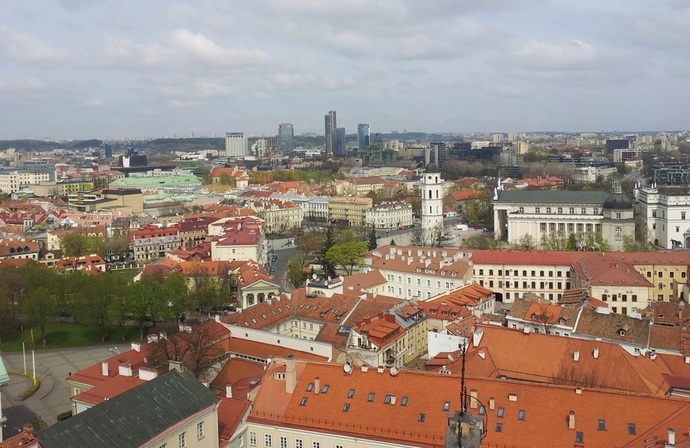
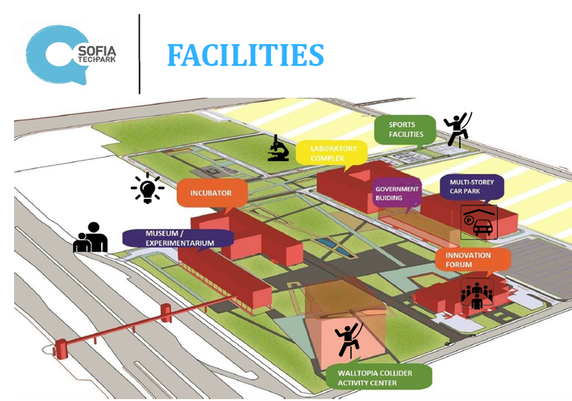
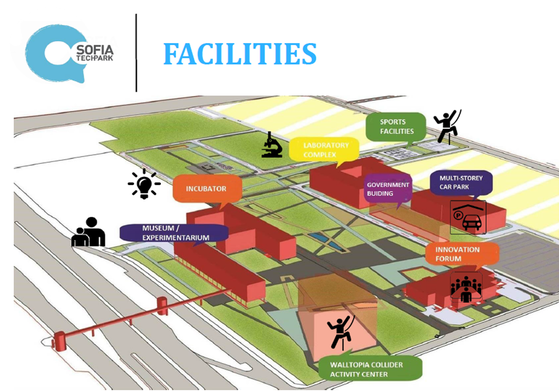
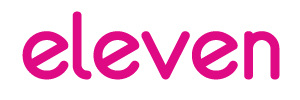
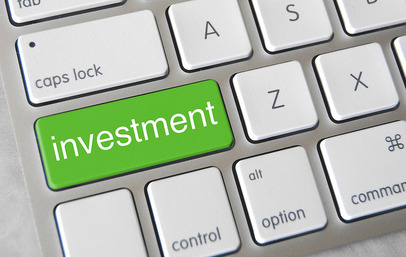
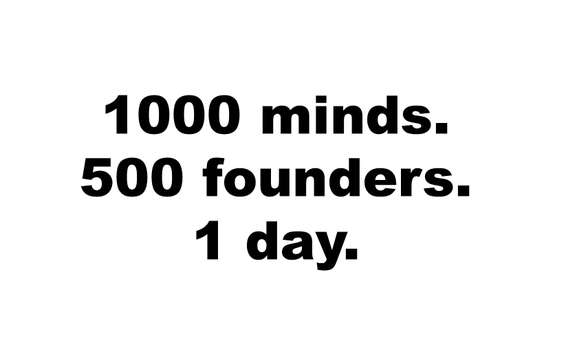
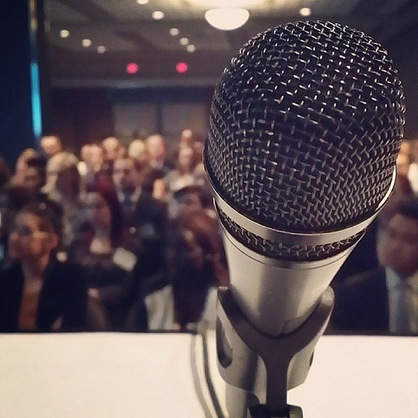

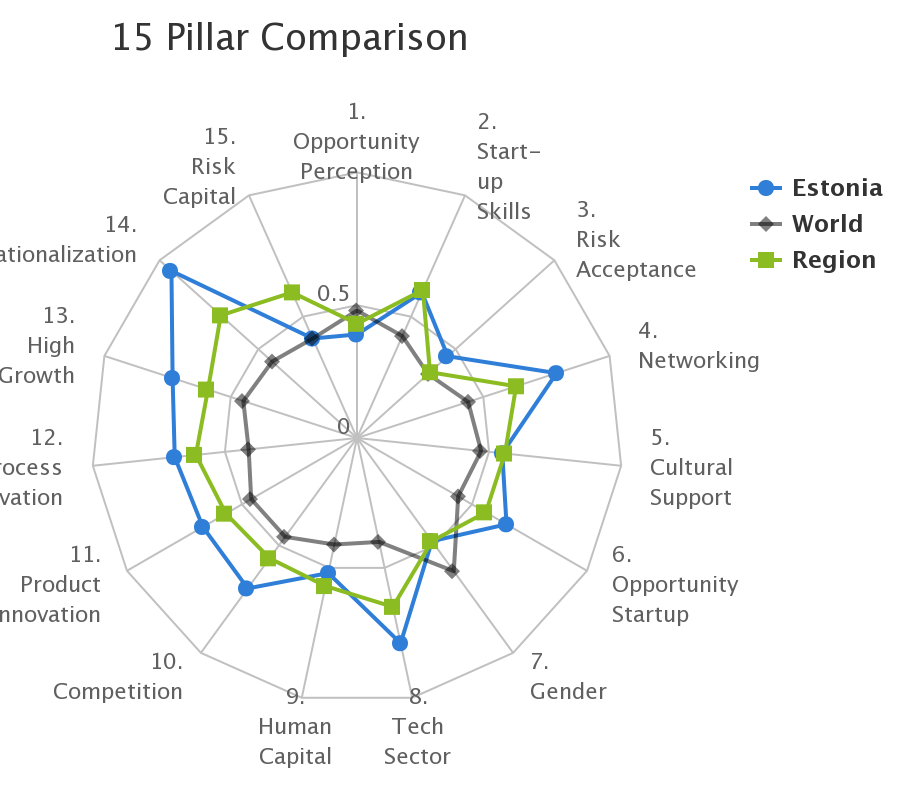

 RSS Feed
RSS Feed

